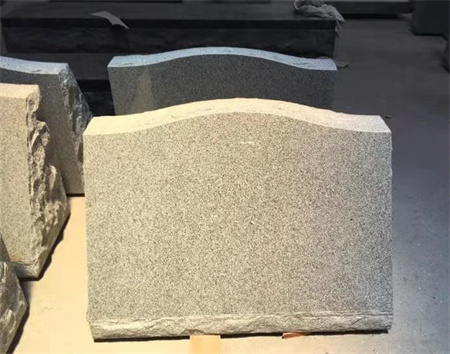The Longevity of Granite Memorials in Sustainable Cemeteries

The Longevity of Granite Memorials in Sustainable Cemeteries
Granite has long been regarded as one of the most durable materials for memorials, particularly in cemeteries. Its resilience, beauty, and permanence make it an ideal choice for honoring the departed, and as the world increasingly embraces sustainability, granite’s role in eco-friendly cemetery designs becomes more evident. In this exploration, we delve into why granite memorials stand the test of time, both physically and environmentally, making them a cornerstone in the development of sustainable cemeteries.

In sustainable cemetery planning, the longevity of materials plays a crucial role in minimizing environmental impact. Many cemeteries, particularly those designed with eco-consciousness in mind, are moving away from traditional memorials made from synthetic materials that may need to be replaced every few decades. The use of granite counters this need for frequent replacements. Since granite memorials do not break down or require constant upkeep, they contribute to the long-term preservation of cemetery landscapes. This is particularly important in sustainable cemeteries, which aim to reduce waste and unnecessary resource consumption.
Moreover, granite is a natural stone, which means it doesn’t rely on the energy-intensive manufacturing processes required for some synthetic materials. The extraction of granite involves quarrying, which is an industry that can be managed sustainably with proper regulations in place. The stone’s mining process, when carefully regulated, doesn’t produce the same levels of waste or pollution associated with other materials, like cement or plastic. Furthermore, granite can be locally sourced, reducing the carbon footprint associated with transportation.
Another important consideration is granite’s low maintenance requirements. Unlike wooden memorials, which often need to be treated with sealants or replaced after years of exposure to the elements, granite requires minimal intervention. A simple cleaning with water is usually enough to maintain its pristine appearance. This not only reduces the resources needed for maintenance but also eliminates the use of potentially harmful chemicals or sealants that could impact the environment. Over time, this saves both energy and money, benefiting both cemetery management and the families who choose granite memorials.
Granite memorials also contribute to the aesthetic and emotional appeal of sustainable cemeteries. These cemeteries are designed with a focus on creating serene, peaceful environments that promote reflection and connection with nature. The stone’s natural colors, textures, and patterns blend harmoniously with the surrounding landscape, whether it’s a forested area, a meadow, or a coastal location. The permanence of granite provides a sense of stability and reassurance, making it a perfect choice for families who seek a lasting tribute to their loved ones while maintaining respect for the environment.
As the concept of green burial and eco-conscious cemetery practices continues to gain popularity, granite memorials are finding new applications in these settings. In some sustainable cemeteries, where traditional burial practices are replaced by natural interment methods, granite memorials serve as a focal point for remembrance without disrupting the natural surroundings. The use of biodegradable materials for caskets and urns is often balanced with the enduring presence of granite, providing a respectful and lasting tribute while ensuring minimal environmental disruption.
In addition, the rise of memorials that incorporate recycled granite or remnants from previous memorial projects further emphasizes the sustainable nature of this stone. Rather than using new stone for every single memorial, some cemeteries are opting to repurpose materials, reducing the demand for new quarrying and further lessening the environmental impact. This innovative approach allows families to choose a memorial that’s both meaningful and environmentally responsible.
Ultimately, the longevity of granite memorials in sustainable cemeteries is a testament to the stone’s ability to harmonize with the growing demand for eco-friendly practices while offering a dignified and lasting tribute to the deceased. As more people look for ways to honor their loved ones in a way that respects the earth, granite’s natural qualities will continue to make it a preferred choice. Its ability to endure through generations not only ensures that memories are preserved but also that these memories are etched into the very fabric of a sustainable future.